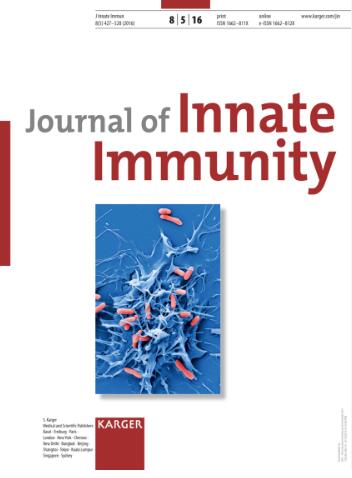抑制 NK 细胞中的 WNK 激酶会破坏细胞渗透调节和肿瘤转移控制。
IF 3
3区 医学
Q2 IMMUNOLOGY
引用次数: 0
摘要
导言丝氨酸/苏氨酸-赖氨酸(WNK)激酶家族在血压控制、电解质平衡和细胞渗透调节中发挥作用。这些激酶及其下游效应物被认为是治疗高血压和中风的有望靶点。方法我们利用小分子 WNK 激酶抑制剂 WNK463 和 WNK-IN-11,研究了抑制 WNK 激酶如何影响自然杀伤(NK)细胞的生理机能。结果用 WNK463 或 WNK-IN-11 抑制 WNK 激酶会显著降低 IL-2 激活的 NK 细胞的体积、运动性和细胞溶解活性。用这些抑制剂处理 NK 细胞可通过激活 AMPK 和抑制 mTOR 信号转导诱导自噬。此外,WNK 激酶抑制剂通过使激活激酶和抑制磷酸酶的活性错位,增加了 Akt 和 c-Myc 的磷酸化。结论:WNK 激酶的催化活性在 NK 细胞生理的多个方面起着关键作用,对其进行药物抑制会对 NK 细胞的功能产生负面影响。本文章由计算机程序翻译,如有差异,请以英文原文为准。
Inhibition of WNK kinases in NK cells disrupts cellular osmoregulation and control of tumor metastasis.
INTRODUCTION
The serine/threonine With-No-Lysine (WNK) kinase family function in blood pressure control, electrolyte homeostasis, and cellular osmoregulation. These kinases and their downstream effectors are considered promising therapeutic targets in hypertension and stroke. However, the role of WNK kinases in immune cells remains poorly understood.
METHODS
Using the small-molecule WNK kinase inhibitors WNK463 and WNK-IN-11, we investigated how WNK kinase inhibition affects natural killer (NK) cell physiology.
RESULTS
WNK kinase inhibition with WNK463 or WNK-IN-11 significantly decreased IL-2-activated NK-cell volume, motility, and cytolytic activity. Treatment of NK cells with these inhibitors induced autophagy by activating AMPK and inhibiting mTOR signaling. Moreover, WNK kinase inhibition increased phosphorylation of Akt and c-Myc by misaligning activity of activating kinases and inhibitory phosphatases. Treatment of tumor-bearing mice with WNK463 impaired tumor metastasis control by adoptively transferred NK cells.
CONCLUSION
The catalytic activity of WNK kinases has a critical role of multiple aspects of NK cell physiology and their pharmacologic inhibition negatively impacts NK cell function.
求助全文
通过发布文献求助,成功后即可免费获取论文全文。
去求助
来源期刊

Journal of Innate Immunity
医学-免疫学
CiteScore
10.50
自引率
1.90%
发文量
35
审稿时长
7.5 months
期刊介绍:
The ''Journal of Innate Immunity'' is a bimonthly journal covering all aspects within the area of innate immunity, including evolution of the immune system, molecular biology of cells involved in innate immunity, pattern recognition and signals of ‘danger’, microbial corruption, host response and inflammation, mucosal immunity, complement and coagulation, sepsis and septic shock, molecular genomics, and development of immunotherapies. The journal publishes original research articles, short communications, reviews, commentaries and letters to the editors. In addition to regular papers, some issues feature a special section with a thematic focus.
 求助内容:
求助内容: 应助结果提醒方式:
应助结果提醒方式:


